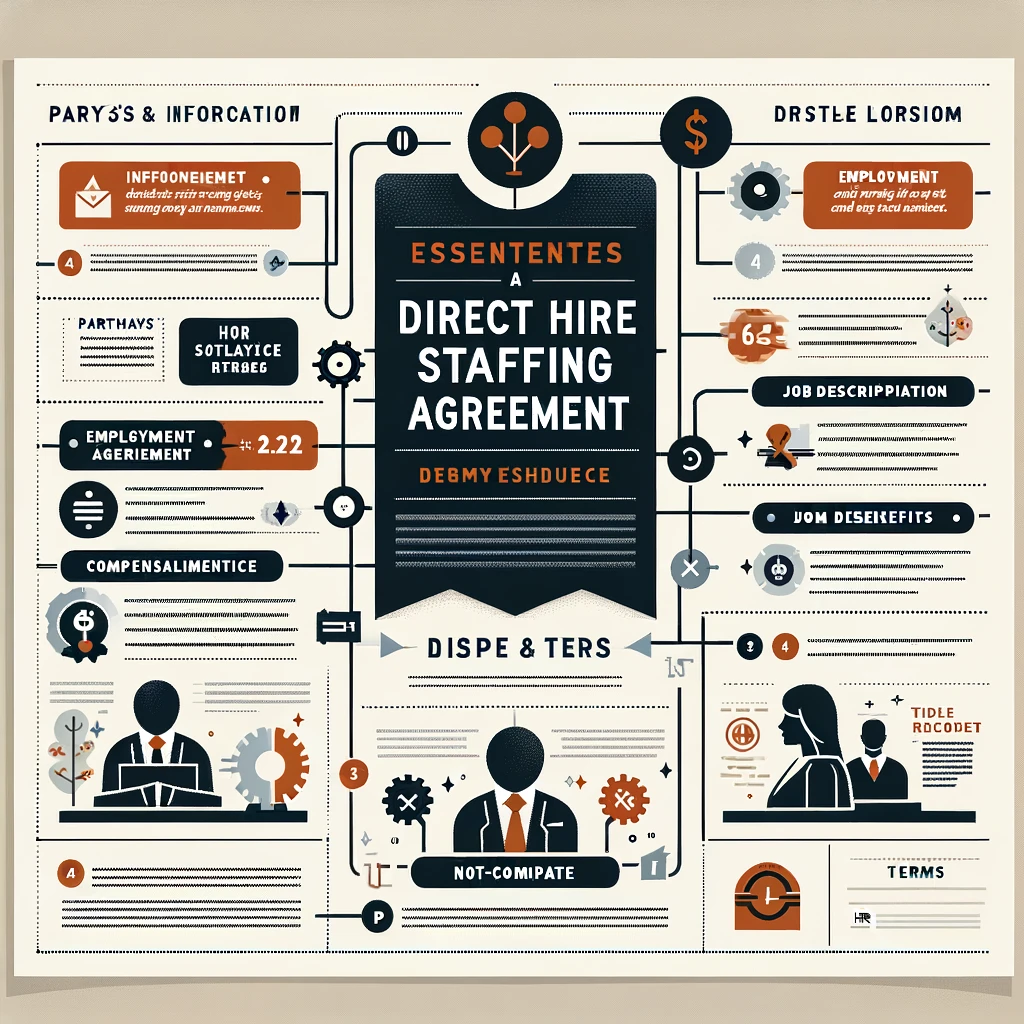Crafting the Perfect Direct Hire Staffing Agreement: A Detailed Guide
In the competitive landscape of talent acquisition, direct hire staffing agreements play a crucial role in defining the terms of employment relationships between companies and the candidates they choose to hire directly. These agreements are fundamental to establishing clear expectations, responsibilities, and protections for both parties. This comprehensive guide delves into the essentials of creating a direct hire staffing agreement template, highlighting the key components, legal considerations, and best practices to ensure a successful and compliant hiring process.

Understanding Direct Hire Staffing Agreements
Direct hire staffing agreements are legal contracts used when a company hires a candidate directly onto its payroll, as opposed to temporary or contract-to-hire arrangements facilitated by staffing agencies. This type of agreement formalizes the employment relationship, detailing the terms under which the individual is hired.
Key Components of a Direct Hire Staffing Agreement
A robust direct hire staffing agreement template should address the following key components to safeguard both the employer's and employee's interests:
Parties' Information: Identification of the employer and the employee, including legal names and contact information.
Job Description: Detailed description of the job role, responsibilities, and expectations.
Compensation and Benefits: Clearly outline salary, bonus potential, benefits (e.g., health insurance, retirement plans), and any other perks.
Employment Duration: Specify whether the employment is at-will or for a fixed term.
Confidentiality and Non-Compete Clauses: Terms to protect sensitive company information and prevent competition against the employer.
Termination Terms: Conditions under which the employment can be terminated, including notice periods.
Dispute Resolution: Procedures for addressing any disputes arising from the employment relationship.
Legal Considerations
Ensuring legal compliance in direct hire staffing agreements is paramount. Adherence to local, state, and federal employment laws protects both parties and upholds the integrity of the hiring process. Noteworthy legal considerations include:
Fair Labor Standards Act (FLSA): Regulations regarding minimum wage, overtime, and working hours.
Equal Employment Opportunity (EEO) laws: Prohibitions against employment discrimination.
Americans with Disabilities Act (ADA): Requirements for reasonable accommodations for employees with disabilities.
Employers should consult authoritative sources such as the U.S. Department of Labor and the Equal Employment Opportunity Commission (EEOC) for comprehensive guidance on employment law compliance.
Benefits of Using a Template
Utilizing a direct hire staffing agreement template offers several advantages:
Consistency: Ensures that all direct hire agreements adhere to a standard format and cover essential terms.
Efficiency: Streamlines the contract drafting process, saving time and resources.
Risk Mitigation: Reduces the risk of legal disputes by clearly defining the terms of employment and ensuring compliance with relevant laws.

Create & Review Your Contracts 10x Quality and Ease
Lawyer-level AI handles all your contract needs, with real lawyers providing safeguarding support

Best Practices for Crafting Direct Hire Staffing Agreements
When developing a direct hire staffing agreement, consider the following best practices to create a fair, transparent, and enforceable document:
Tailor to Fit: While a template provides a solid starting point, customize each agreement to reflect the specific role and terms of employment.
Ensure Clarity: Use clear and concise language to avoid ambiguity and misunderstanding.
Stay Updated: Regularly review and update the template to reflect changes in employment laws and organizational policies.
Seek Legal Review: Before finalizing the agreement, have it reviewed by a legal professional specializing in employment law to ensure compliance and address any potential issues.
Conclusion
Direct hire staffing agreements are essential tools in the recruitment process, setting the stage for successful employment relationships. By understanding the key components, legal considerations, and best practices for drafting these agreements, employers can ensure a smooth, compliant, and effective hiring process. For further exploration and to enhance your knowledge, visiting educational resources like Harvard Law School's Labor and Worklife Program can provide deeper insights into employment agreements and labor law.
Crafting a well-structured direct hire staffing agreement is not just about compliance; it's about establishing a foundation of trust and clear communication between employers and their new hires, ensuring both parties are aligned on expectations and responsibilities from the outset.

